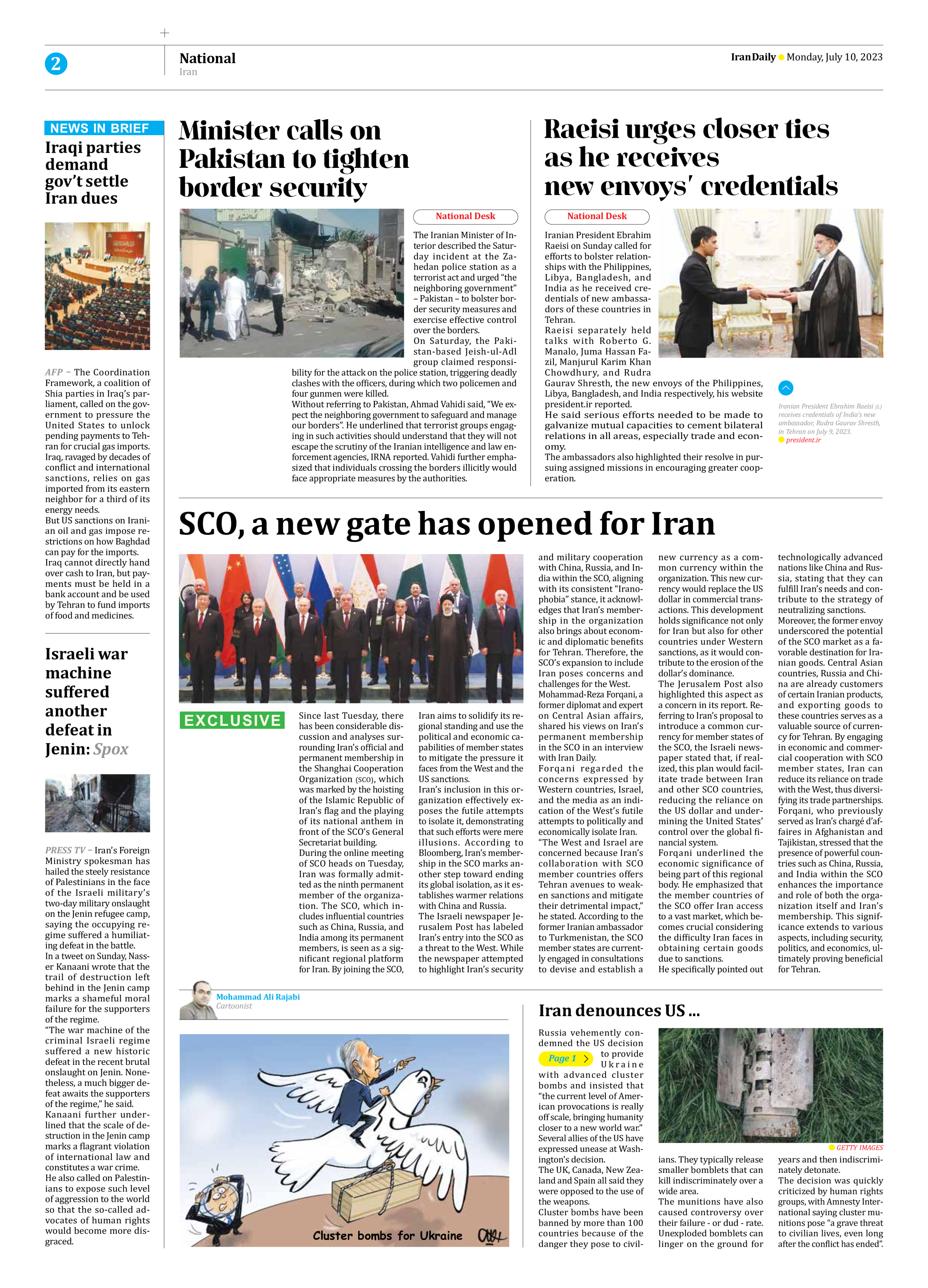
SCO, a new gate has opened for Iran
Since last Tuesday, there has been considerable discussion and analyses surrounding Iran’s official and permanent membership in the Shanghai Cooperation Organization (SCO), which was marked by the hoisting of the Islamic Republic of Iran’s flag and the playing of its national anthem in front of the SCO’s General Secretariat building.
During the online meeting of SCO heads on Tuesday, Iran was formally admitted as the ninth permanent member of the organization. The SCO, which includes influential countries such as China, Russia, and India among its permanent members, is seen as a significant regional platform for Iran. By joining the SCO, Iran aims to solidify its regional standing and use the political and economic capabilities of member states to mitigate the pressure it faces from the West and the US sanctions.
Iran’s inclusion in this organization effectively exposes the futile attempts to isolate it, demonstrating that such efforts were mere illusions. According to Bloomberg, Iran’s membership in the SCO marks another step toward ending its global isolation, as it establishes warmer relations with China and Russia.
The Israeli newspaper Jerusalem Post has labeled Iran’s entry into the SCO as a threat to the West. While the newspaper attempted to highlight Iran’s security and military cooperation with China, Russia, and India within the SCO, aligning with its consistent “Iranophobia” stance, it acknowledges that Iran’s membership in the organization also brings about economic and diplomatic benefits for Tehran. Therefore, the SCO’s expansion to include Iran poses concerns and challenges for the West.
Mohammad-Reza Forqani, a former diplomat and expert on Central Asian affairs, shared his views on Iran’s permanent membership in the SCO in an interview with Iran Daily.
Forqani regarded the concerns expressed by Western countries, Israel, and the media as an indication of the West’s futile attempts to politically and economically isolate Iran.
“The West and Israel are concerned because Iran’s collaboration with SCO member countries offers Tehran avenues to weaken sanctions and mitigate their detrimental impact,” he stated. According to the former Iranian ambassador to Turkmenistan, the SCO member states are currently engaged in consultations to devise and establish a new currency as a common currency within the organization. This new currency would replace the US dollar in commercial transactions. This development holds significance not only for Iran but also for other countries under Western sanctions, as it would contribute to the erosion of the dollar’s dominance.
The Jerusalem Post also highlighted this aspect as a concern in its report. Referring to Iran’s proposal to introduce a common currency for member states of the SCO, the Israeli newspaper stated that, if realized, this plan would facilitate trade between Iran and other SCO countries, reducing the reliance on the US dollar and undermining the United States’ control over the global financial system.
Forqani underlined the economic significance of being part of this regional body. He emphasized that the member countries of the SCO offer Iran access to a vast market, which becomes crucial considering the difficulty Iran faces in obtaining certain goods due to sanctions.
He specifically pointed out technologically advanced nations like China and Russia, stating that they can fulfill Iran’s needs and contribute to the strategy of neutralizing sanctions.
Moreover, the former envoy underscored the potential of the SCO market as a favorable destination for Iranian goods. Central Asian countries, Russia and China are already customers of certain Iranian products, and exporting goods to these countries serves as a valuable source of currency for Tehran. By engaging in economic and commercial cooperation with SCO member states, Iran can reduce its reliance on trade with the West, thus diversifying its trade partnerships.
Forqani, who previously served as Iran’s chargé d’affaires in Afghanistan and Tajikistan, stressed that the presence of powerful countries such as China, Russia, and India within the SCO enhances the importance and role of both the organization itself and Iran’s membership. This significance extends to various aspects, including security, politics, and economics, ultimately proving beneficial for Tehran.







